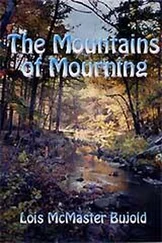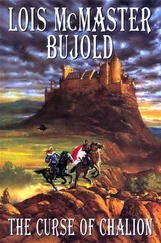Lois Bujold - The Sharing Knife - Beguilement
Здесь есть возможность читать онлайн «Lois Bujold - The Sharing Knife - Beguilement» весь текст электронной книги совершенно бесплатно (целиком полную версию без сокращений). В некоторых случаях можно слушать аудио, скачать через торрент в формате fb2 и присутствует краткое содержание. Жанр: Фантастика и фэнтези, на английском языке. Описание произведения, (предисловие) а так же отзывы посетителей доступны на портале библиотеки ЛибКат.
- Название:The Sharing Knife: Beguilement
- Автор:
- Жанр:
- Год:неизвестен
- ISBN:нет данных
- Рейтинг книги:5 / 5. Голосов: 1
-
Избранное:Добавить в избранное
- Отзывы:
-
Ваша оценка:
- 100
- 1
- 2
- 3
- 4
- 5
The Sharing Knife: Beguilement: краткое содержание, описание и аннотация
Предлагаем к чтению аннотацию, описание, краткое содержание или предисловие (зависит от того, что написал сам автор книги «The Sharing Knife: Beguilement»). Если вы не нашли необходимую информацию о книге — напишите в комментариях, мы постараемся отыскать её.
The Sharing Knife: Beguilement — читать онлайн бесплатно полную книгу (весь текст) целиком
Ниже представлен текст книги, разбитый по страницам. Система сохранения места последней прочитанной страницы, позволяет с удобством читать онлайн бесплатно книгу «The Sharing Knife: Beguilement», без необходимости каждый раз заново искать на чём Вы остановились. Поставьте закладку, и сможете в любой момент перейти на страницу, на которой закончили чтение.
Интервал:
Закладка:
His hair was clean and soft and already escaping whatever order a stern combing had imposed upon it, looking very touchable, if only she could reach that high.
Tiptoes. A stepladder. Something…
The atmosphere in the dining room was not too different from other nights, ravenous and raucous, except more crowded because for once everyone was there at the same time. They were all notably cleaned up, and many seemed to have obtained, or shared, scent water. Party clothes seemed to be everyone’s same clothes, except laundered. Fawn supposed saddlebags didn’t really have room for many changes; the women were all still wearing trousers. Did they ever wear skirts? Hairstyles seemed more elaborate, though. Some of the younger patrollers even wore bells in their braids.
Food and drink, especially drink, overflowed through the entry hall into the next room, where chairs were pushed to the walls and rugs rolled up to make a space to dance. Fawn found herself a seat with the rest of the convalescents, Saun and Reela and the man from Chato’s patrol with the game knee and stitches in his jaw, and that poor subdued fellow who’d managed to get snakebit yesterday and was now good-naturedly enduring some pretty merciless ribbing about it.
The teasers also distributed fresh beer to all the chair-bound, however, and seemed dedicated to keeping it coming. Fawn sipped hers and smiled shy thanks.
Dag had vanished briefly, but now he returned, screwing something into his wrist cap. Fawn blinked in astonishment to recognize a tambourine, fitted with a wooden peg so he might hold it securely.
“My goodness! I didn’t know you played anything.”
He grinned at her, giving the frame a last adjustment and drumming his fingers over the stretched skin. The staccato sound made her sit up. “How clever. What did you play before you lost your hand?”
“Tambourine,” he replied cheerily. “I tried the flute, but it tangled my fingers up even when I had twice as many, and when I tackled the fiddle, I was accused of tormenting cats. With this, I can never strike a wrong note. Besides”—he lowered his voice conspiratorially—“it gets me off the hook for the dancing.”
He winked at her and drifted up to the head of the room, where some other patrollers were collecting.
Their array of instruments seemed a bit random, but mostly small, as would fit in a spare corner of a saddlebag. There were several flutes, of wood, clay, or bone, two fiddles, and a makeshift collection of overturned tubs for thumping on, obviously filched from around the hotel. The room filled and quieted.
A gray-haired man with a bone flute stepped forward into the hush and began a melody Fawn found haunting; it made the hairs stir on her arms. Disturbed, she studied that pale length of bone, its surface burned about with writing, and was suddenly certain it was someone’s relative. Because thighbones came in pairs, but hearts came one by one, so what did Lakewalker makers do with the leftovers, in all honor? The tune was so elegiac, it had be some prayer or hymn or memorial; Fawn could see a few people’s lips moving on words they obviously knew by heart. A hush followed for a full minute, with everyone’s eyes downcast.
A rattle like a snake from the tambourine, and a sudden spatter of drumming, broke the sorrow to bits as if trying to blow it out the windows. The fiddlers and flute players and tub-thumpers struck up a lively dance tune, and patrollers swung out onto the floor. They did not dance in couples but in groups, weaving complex patterns around one another. Except for the shifting about of partners in blithe disregard of anyone’s sex, it reminded Fawn a lot of farmer barn dances, although the patrollers seemed to do without a caller. She wondered if they were doing something with their groundsenses to take the place of that outside coordination. Intensely complex as the patterns seemed, the dancers seldom missed a step, although when someone did, it was greeted with much hooting and laughter as the whole bunch rearranged themselves, picked up the pulse, and started again. The bells rang merrily. Dag stood at the back of the musicians, keeping steady time, punctuating his rhythms with well-placed spurts of jingling, watching it all and looking unusually happy; he didn’t talk or sing, but he smiled a bit as the jokes flew by.
The younger patrollers’ appetites for fast dances seemed insatiable, but at length the wheezing musicians traded out for a couple of singers. Outside, the long summer sun had gone down, and the room was hot with candles and lamps and sweaty bodies. Dag unscrewed his tambourine and came to sit at Fawn’s feet, catching up on his beer-drinking with the aid of what seemed a bucket brigade of well-wishers.
One song was new to Fawn, another to a known tune but with different words, and a third she’d heard her aunt Nattie croon as she spun thread, and she wondered if it had originated with farmers or Lakewalkers. The singers were a man and a woman from Chato’s patrol, and their voices blended beguilingly, hers pure and fair, his low and resonant. By this time, Fawn wasn’t sure if the song about a lost patroller dancing in the woods with magical bears was fantasy or not.
The man with the bone flute joined them, making a trio; when he sent a preamble of notes into the air for the next song, Dag set his half-full glass rather abruptly on the floor. His smile over his shoulder at Fawn more resembled a grimace. “Privy run. Beer, eh,” he excused himself, and levered to his feet.
Three sets of eyes marked his movement in concern: Mari’s, Utau’s, and one other older comrade’s; Mari made a gesture of query, Should I… ? to which Dag returned a small headshake. He trod out without looking back.
“Fifty folk walked out that day,” the song began, and Fawn quickly twigged to Dag’s sudden retreat, because it turned out to be a long, involved ballad about the battle of Wolf Ridge. It named no names in its weaving of poetry and tune, of woe, gallantry, sacrifice, and victory, subtly inviting all to identify with its various heroes, and under any other circumstances Fawn would have found it thrilling. Most of the patrollers, truly, seemed variously thrilled or moved; Reela swiped away a tear, and Saun hung openmouthed in the intensity of his listening.
They do not know, Fawn realized. Saun, who had patrolled with Dag for a year and claimed to know him well, did not know. Utau did, listening with his hand over his mouth, eyes dark; Mari, of course, did, with her glances at the archway out which Dag had quietly vanished, and through which he did not return. The song finished at last, and another, more cheerful one started.
When Dag still did not return, Fawn slipped out herself. Someone else was exiting the commode chamber, so she tried outside. It was blessedly cooler out here, the blue shadows relieved by yellow light from the cheery windows, from the lanterns flanking the porch door, and, across the yard, from above the stable doors. Dag was sitting on the bench outside the stable, head back against the wall, staring up at the summer stars.
She sat down beside him and just let the silence hang for a time, for it was not uncomfortable, cloaking them like the night. The stars burned bright and seeming-close despite the lanterns; the sky was cloudless. “You all right?”
she asked at last.
“Oh, yeah.” He ran his hand through his hair, and added reflectively, “When I was a boy, I used to just love all those heroic ballads. I memorized dozens. wonder if all those other old battle songs would have seemed as obscene to their survivors?” Yet he claims not to sing. Unable to answer this, Fawn offered, “At least it helps people remember.”
“Yes. Alas.”
“It wasn’t a bad song. In fact, I thought it was awfully good. As a song, I mean.”
Читать дальшеИнтервал:
Закладка:
Похожие книги на «The Sharing Knife: Beguilement»
Представляем Вашему вниманию похожие книги на «The Sharing Knife: Beguilement» списком для выбора. Мы отобрали схожую по названию и смыслу литературу в надежде предоставить читателям больше вариантов отыскать новые, интересные, ещё непрочитанные произведения.
Обсуждение, отзывы о книге «The Sharing Knife: Beguilement» и просто собственные мнения читателей. Оставьте ваши комментарии, напишите, что Вы думаете о произведении, его смысле или главных героях. Укажите что конкретно понравилось, а что нет, и почему Вы так считаете.







